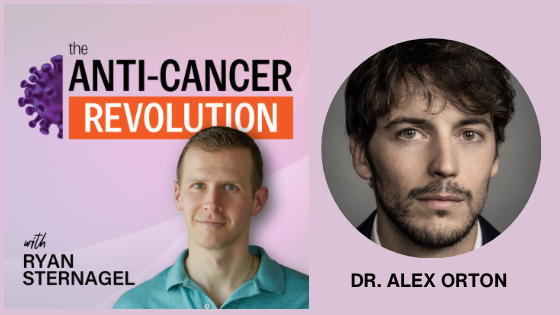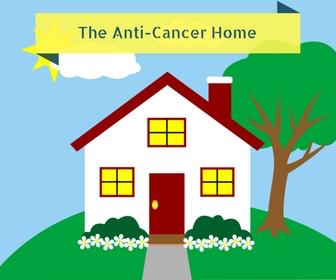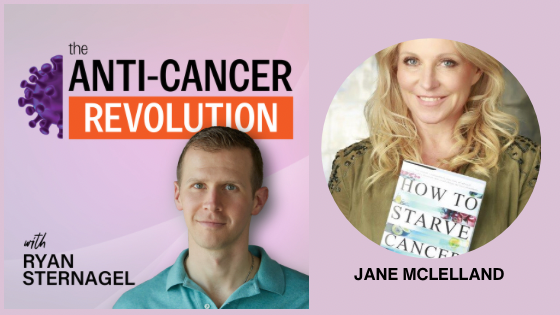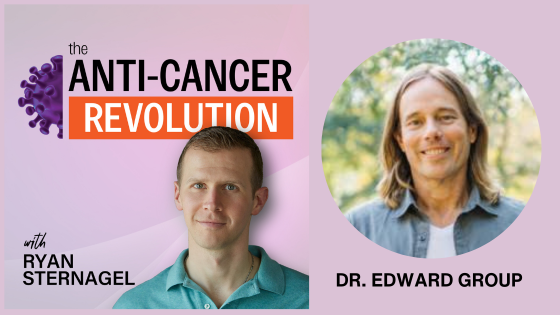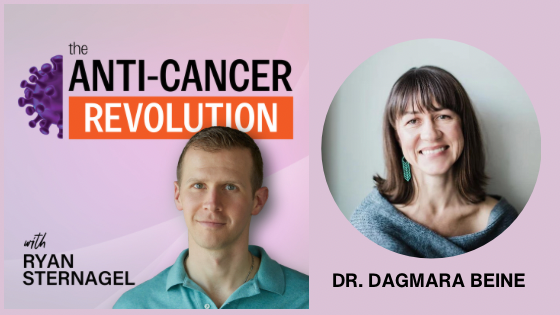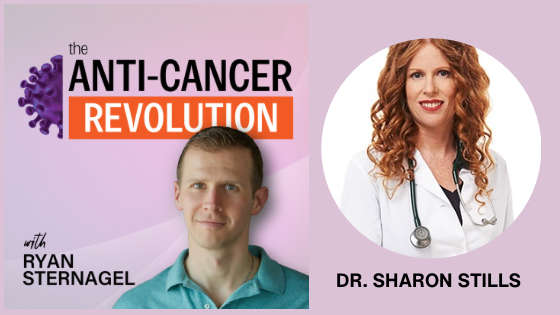In this insightful podcast, Dr. Orton introduces Haven Holistic Health Center, pioneering individualized health education in Chicago, and critiques the ‘green allopathy’ trend in alternative medicine.
He underscores the Gonzalez protocol, advocating for lifestyle changes over technological reliance for degenerative diseases and cancer care.
Key discussions include the metabolic typing essential for the protocol, addressing misconceptions about sugar’s role in cancer, and emphasizing the unique signaling role of pancreatic enzymes in treatment.
Dr. Orton’s holistic approach, combining diet, supplementation, and detox routines, offers a nuanced perspective on health optimization and chronic illness recovery.
Tune in to discover why one-size-fits-all doesn’t apply in holistic health and how personalized care is revolutionizing the wellness landscape!
Resources Mentioned
- Haven Holistic Health Center
- The Gonzalez protocol
- Metabolic Type Test
- Pancreatic enzymes
- Glandular supplements
- Sodium bicarbonate
- CAC tea
- Pancreatic enzymes
- Coffee enemas
- Carrot juice
- Beta-carotene
- Pancreatic enzymes (trypsin and chymotrypsin)
Timestamped Episode Summary
Founding of Haven Holistic Health Center
- [00:01:26] Dr. Orton and Dr. Orata established Haven, a holistic health center in Chicago, to address the lack of truly holistic healthcare. They focus on creating individualized health programs to educate and empower people to optimize their health and recover from chronic illness.
Critique of “Green Allopathy”
- [00:01:45] Dr. Orton criticizes the practice of “green allopathy” in alternative medicine, where supplements are prescribed in the same way as drugs without addressing the underlying lifestyle issues that contribute to chronic illness.
Foundations of True Health
- [00:02:36] Emphasizes the need for health plans that address foundational lifestyle factors, such as daily habits and mindset, which are crucial for achieving and maintaining health.
The Gonzalez Protocol
- [00:03:31] Dr. Orton advocates for the Gonzalez protocol, which focuses on lifestyle changes rather than just advanced technology or supplements for treating degenerative diseases and cancer.
Legacy and Implementation of the Gonzalez Protocol
- [00:04:42] Mary Beth Gonzalez, the president of the Gonzalez Foundation and Dr. Gonzalez’s wife, took time to ensure the integrity and effectiveness of the Gonzalez protocol to honor her husband’s legacy.
Enzyme Therapy and the Gonzalez Protocol
- [00:06:32] Dr. Orton adheres strictly to the Gonzalez protocol regarding enzyme therapy. He explains the history and importance of enzyme potency and stability as established by Dr. Gonzalez.
Overview of the Gonzalez Protocol
- [00:08:34] The Gonzalez protocol includes an individualized diet, supplement regimen, and detoxification routines. It is a holistic approach designed over decades to support body healing from cancer and other diseases.
Metabolic Typing and Supplementation
- [00:13:42] The protocol involves metabolic typing to tailor supplement doses to each individual’s needs, emphasizing the balance of acid and alkaline in the body, and choosing the right forms of nutrients.
Metabolic Typing Determination
- [00:17:55] Dr. Orton details the process of determining an individual’s metabolic type through symptoms related to the balance between sympathetic (fight or flight) and parasympathetic (rest or digest) nervous systems. This assessment is crucial to the Gonzalez protocol.
Symptom-Based Metabolic Analysis
- [00:18:01] Sympathetic dominant individuals may exhibit symptoms like constipation and high blood pressure, while parasympathetic dominance might present with diarrhea and autoimmune issues. This helps in guiding dietary recommendations, such as the need for red meat to acidify an overly alkaline system.
Comprehensive Questionnaire and Diagnosis
- [00:20:51] A lengthy questionnaire developed by Dr. Kelly assists in evaluating a wide array of symptoms to avoid misclassification of metabolic types.
Assessing Acid-Alkaline Balance
- [00:22:08] Dr. Orton explains the complexity of accurately measuring the acid-alkaline balance in the body, mentioning experimental tests used in their practice and ongoing validation of Dr. Kelly’s blood work correlations.
Bicarbonate Treatment for Cancer
- [00:23:53] Discussion on the use of sodium bicarbonate injections for treating solid tumors, which are generally overly acidic, and the importance of metabolic typing in cancer treatment.
Cancer Typing and Treatment
- [00:26:01] Solid tumors tend to be too acidic while immune system-related cancers (like leukemia) tend to be too alkaline. This influences the application of the Gonzalez protocol and other treatments like sodium bicarbonate injections.
CAC Tea and Treatment Considerations
- [00:28:21] Dr. Orton is open to the use of SEAC tea and other herbal remedies but emphasizes the importance of not overwhelming the system with too many treatments at once.
Preventative Use of Enzymes
- [00:31:02] Pancreatic enzymes are endorsed for preventative measures against cancer, but they must be paired with detoxification practices like coffee enemas to manage waste products.
Specificity of the Gonzalez Protocol
- [00:32:05] The protocol’s effectiveness may vary with different types of cancer, influenced by factors such as blood flow to the tumor, with leukemia being notably responsive due to its presence in the bloodstream.
Blood Flow and Cancer Treatment Efficacy
- [00:34:23] Tumors in areas with poor blood flow, such as radiation scars or primary liver cancer, may be more challenging to treat, requiring longer timeframes or adjunctive treatments like bicarbonate injections.
Gonzalez Protocol vs. Gerson Therapy
- [00:35:13] Dr. Orton clarifies the differences between the Gonzalez and Gerson therapies, particularly in their approach to treating acidic versus alkaline cancers.
Juicing in the Gonzalez Protocol
- [00:35:54] Juicing is included in the Gonzalez protocol for cancer patients, albeit less intensely than in the Gerson therapy, to provide a digestible source of nutrients and enzymes.
Juicing and Metabolic Types
- [00:36:53] Dr. Orton clarifies that under the Gonzalez protocol, carrot juice is considered neutral and is recommended for all metabolic types. Parasympathetic types, contrary to avoidance of alkaline foods, can still consume fruits, especially tropical ones, for their enzyme content.
Food Choices for Parasympathetic Types
- [00:37:20] Although parasympathetic dominant individuals need to emphasize acidic foods, they can still include certain fruits and neutral foods like carrots in their diet. However, they should avoid highly alkalizing foods like green leafy vegetables and citrus fruits.
Misconceptions About Acidic and Alkaline Foods
- [00:38:46] Dr. Orton addresses the common misconception about the acidity of citrus fruits. Despite their acidic taste, they have an alkaline effect on the body, making them suitable for sympathetic dominant individuals.
Sugar Consumption and Cancer
- [00:39:59] Dr. Orton dispels the myth that sugar feeds cancer, referencing Otto Warburg’s research. He explains that Dr. Gonzalez’s high-sugar diets, consisting of natural sugars from juices and fruits, showed no evidence of promoting cancer.
Beet Juice vs. Carrot Juice
- [00:42:39] While beets have different properties, carrot juice remains the foundation in the Gonzalez protocol, primarily for its concentration of beta-carotene, which supports the immune system during cancer treatment.
Enzymes in Cancer Treatment
- [00:43:30] Pancreatic enzymes are highlighted as special due to their signaling mechanism that inhibits the proliferation of undifferentiated cells, similar to fetal development, rather than just digesting tumors.

